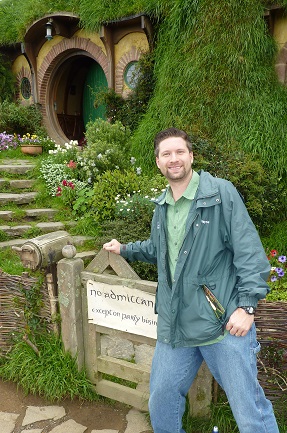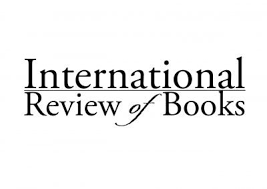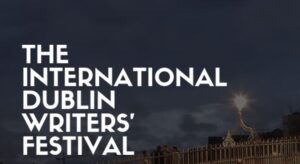Jul 4, 2024 | Editors' Blog, Interviews, Mystery, Sci-fi
Today, we’re talking with Nathan Gregory about his book,
Tell us something unexpected about yourself!
I make things up. That’s what we writers do, make things up.
Why do you write?
After the crash of the 2000s I became depressed. As an outlet, self-therapy, I started writing. I never wrote for any audience but myself, and never had any intention of publishing. But a good friend persuaded me to put that first story, ‘Chromosome Quest,’ on Amazon, and to my shock and surprise, it sold. It keeps selling, a steady trickle, but sales nonetheless, and spawned two sequels and a prequel. This new book is a sequel to the prequel. But old CQ outsells all the other books combined, to my constant amazement.
Where did you get the inspiration for your current book?
The current book flows naturally from the ones before it in the series. The series, the entire story arc, is deeply rooted in various mythologies around UFOs, extraterrestrial life, and ancient aliens. The story arc represents my original ideas about how Aliens might exist on Earth. I borrow equally from Erich Von Daniken and E.E. “Doc” Smith. I used so much of Smith’s fictional world in ‘Chromosome Conspiracy’ that I asked the author’s estate, in the person of his grandson, for permission, which he kindly granted.
What do you enjoy the most about your genre?
As an engineer, one might assume my interest lies with the technological innovations and fantastical worlds depicted in sci-fi. There is truth in that, but I equally enjoy exploring the ways in which these speculative futures reflect and critique our present-day societal structures and norms. Science fiction serves as a lens through which complex issues such as power, identity, and morality can be explored in imaginative and thought-provoking ways.
How would you describe your writing process?
Three cups (at least) of strong coffee, NIFOC, and total silence. I usually start sometime between 3 AM and 4 AM, and stop when the coming day refuses to accept “go away.”
What advice would you have for other writers?
Illegitimi non carborundum. Scribe ut tibi ipsi placere primum. (Don’t let the bastards grind you down. Write to please yourself first.)
 How do you select your books’ titles and covers?
How do you select your books’ titles and covers?
I consult the stars, deciphering their cryptic dance, for in their celestial choreography lies the truth of my decisions. If that doesn’t work, I often find I must kill a chicken for the blood and entrails to use in an obscure little ritual that was handed down from my distant Scots-Irish ancestors.
What’s your next step?
I think I may step back from fiction for a while. I have two non-fiction works I’d like to complete. But before I get to work on those, I want to take a road trip. A long road trip.
What book do you wish you’d written?
I won’t say I exactly wish I had written it, but a book which I love, which I can deeply relate to due to having grown up in the “Bible Belt,” and which I feel is vastly underrated, is Heinlein’s “JOB: A Comedy of Justice”
How do you react to seeing a new review for your book?
trepidation. fear. And sometimes, a sigh of blessed relief.
FIND NATHAN’S BOOK ON AMAZON
Jul 4, 2024 | Editors' Blog, Interviews, Romance
Today, we’re talking with Jamie Anderson about her book,
Tell us something unexpected about yourself!
When I was young I wanted to be an actor and got a scholarship for the University of Regina Theatre program.
Why do you write?
I write to tell the stories that live inside my head like many authors do, but I also write to help me process things that are happening in my life now or have happened in the past.
Where did you get the inspiration for your current book?
So far, for both books I’ve written, I’ve gotten inspiration from my own life.
What do you enjoy the most about your genre?
I love the happy endings in the Romance genre. I love that things, more or less, get worked out and everyone gets what they want. It’s comforting to know what you’re going to get. That doesn’t always happen in real life.
How would you describe your writing process?
While I wish I was more of a pantser, I’m definitely a plotter. I like to have structure going in but sometimes as I write I surprise myself, which is fun.
What do you think authors have to gain from participating in social media?
Social media gives authors the opportunity to build their brand. There’s an opportunity to sell books but, more than that, there’s an opportunity to provide value in the form of book reviews, peaks behind the scenes, writing tips and sharing things from other authors. By providing that value, an author entertains and builds trust with their audience which allows them to build a relationship with the writing and reading community.
What advice would you have for other writers?
Don’t give up. If writing is something you love to do, keep at it. Keep writing. Keep learning. Keep working towards your dream. However, if you need to take a break, that’s okay too!
 How do you select your books’ titles and covers?
How do you select your books’ titles and covers?
My titles just come to me, I don’t really have a process. As for book covers, they’re designed by an artist hired by my publisher. I do get some say in them, but I trust my publisher to guide the process.
What’s your next step?
I’m currently working on my third book, but I can’t say much about it yet. Mostly right now I’m working towards launching Love, Julie on April 30th and celebrating that!
What book do you wish you’d written?
Right now I’m reading The Most Fun We Ever Had by Claire Lombardo and I’m LOVING it. Her writing is so amazing, it’s like every word was given precise consideration and chosen perfectly. I only wish I could write like that.
How do you react to seeing a new review for your book?
I love it when a reader tags me on social and has something nice to say about my books. I realize that writing is subjective and not everyone will like what they read, but it warms my heart to know that someone took the time to write something kind if they happened to enjoy something I wrote.
FIND JAMIE’S BOOK ON AMAZON
Jul 3, 2024 | Editors' Blog, Historical, Interviews
Today, we’re talking with Ayşe Osmanoğlu about her book,
Tell us something unexpected about yourself!
I have five children! As every mother knows, that makes me great at juggling, balancing and multi-tasking!!
Why do you write?
I write because I want to give a voice to my ancestors and tell their story, share their memories, and describe the lost splendour of Imperial Istanbul.
Where did you get the inspiration for your current book?
The inspiration for my book, “A Farewell to Imperial Istanbul,” came from the love and respect I have for my grandparents and the pride I feel for my family’s history. When I was young, my grandparents told me many stories about their life in Istanbul before their exile and of the terrible hardships they endured after they were forced to leave their homeland. This forged a desire in me to give voice to their experiences, to capture the essence of a bygone era, and to explore themes of family, duty, and resilience as a tribute to their memories and a celebration of the beauty of Imperial Istanbul.
What do you enjoy the most about your genre?
What I love most about writing historical fiction is the opportunity to escape into another world and to invite my readers to join me on the journey back in time. It’s a genre that allows me to tell forgotten stories, bring historical figures to life, and connect readers with the enduring themes of our shared history.
How would you describe your writing process?
My writing process has definitely evolved. For my first book, ‘The Gilded Cage on the Bosphorus’ I was definitely a pantser and did very little planning. However, with ‘A Farewell To Imperial Istanbul’, I adopted a much more structured approach which I think resulted in a more polished manuscript. I outlined, plotted, and planned extensively. When I eventually sat at my desk and began to write, a cold Diet Coke and a few snacks within easy reach, the right words flowed more easily so I will definitely be outlining, plotting and planning for my next book. Once I start writing, I like to re-visit and edit the scene I worked on the day before, then I move on to the next scene. I typically spend focussed blocks of time, usually about three hours, crafting one new scene at a time, in between sips of Diet Coke and nibbles of hummus and pitta!
What do you think authors have to gain from participating in social media?
I think the best thing about social media is that it is an excellent way for authors to connect directly with their readers. I am so lucky to have forged some very special relationships with some of mine, and I am so grateful for the wonderfully supportive community that surrounds my books.
What advice would you have for other writers?
My advice for other writers is simple: don’t put off writing your story. Begin today, even if it’s just a few words. There’s never a perfect time to start, so why not now? And write about something you love, something you are passionate about – write for yourself…
 How do you select your books’ titles and covers?
How do you select your books’ titles and covers?
For my first book, the title came to me during the early stages of research, so that was easy! However, with my newest book, ‘A Farewell To Imperial Istanbul’, I struggled quite a bit and only settled on the title after finishing the manuscript. It took time, but I love it and think it is perfect! As for the covers, I had specific ideas in mind that talented (and very patient!) designers brought to life after some collaboration.
What’s your next step?
I have already started the research for my next book!
What book do you wish you’d written?
Oh gosh! That is a hard question! Can I pick two classics? If so I would choose ‘Pride and Prejudice’ by Jane Austen and ‘War and Peace’ by Leo Tolstoy. I would love to be able to write about love with the wit and charm of Jane Austen, while I admire the way Tolstoy’s characters are so vividly drawn and how he weaves together their personal stories with the grand sweep of history.
How do you react to seeing a new review for your book?
When I spot a new review for my book, my heart definitely quickens! While a negative review does hurt, I always try to focus on the positive ones and appreciate the insights readers share. It’s all part of the journey of being an author, and I’m grateful for every reader’s perspective.
FIND AYŞE’S BOOK ON AMAZON
Jul 3, 2024 | Audio Book, Editors' Blog, Interviews, Non Fiction
Today, we’re talking with Evan Soundwell about his book,
Tell us something unexpected about yourself!
I am a holistic sonic therapist, not a professional writer. My expertise lies in the field of sound. With a robust academic background as a music teacher, performer, conductor, composer, and musicologist, I represent the new holistic sonic modality “Sonic Consciousness.” While my primary language is music, I have ventured into writing to communicate my discoveries in sound therapy.
Why do you write?
In today’s segmented world of knowledge, sound healing remains a field that ordinary people have limited awareness of and often rely on so-called experts. I aim to bridge that gap, educate people, and help them form their own judgments to avoid misconceptions and fraudulent claims in the realm of sound healing. Writing allows me to share my discoveries and insights, documenting the profound impact that sound and frequency can have on well-being. It provides a comprehensive answer to the general question of whether sound can heal.
Where did you get the inspiration for your current book?
The inspiration for “Sonic Consciousness” came from the gaps I observed in the existing literature on sound therapy. Many materials I encountered lacked either musical depth or scientific precision. This motivated me to share my comprehensive understanding in a structured and accessible way, addressing important questions that have never been fully answered, such as the true nature and clear definition of harmony, among many others.
What do you enjoy the most about your genre?
I enjoy the holistic health genre because it allows for a comprehensive approach to well-being, integrating physical, emotional, and spiritual aspects. It’s rewarding to see how alternative therapies can complement conventional medicine and provide relief to those in need.
How would you describe your writing process?
I discovered that writing and composing have a lot in common; they are just different languages. While everyone possesses the ability to understand the language of music naturally, writing is another skill I have developed to share my insights. My process is methodical and intuitive, starting with a broad outline and delving into detailed research and personal anecdotes to make the content relatable and engaging. This audiobook is designed with numerous sound examples to allow listeners to experience firsthand every claim I make.
What do you think authors have to gain from participating in social media?
Social media offers authors a platform to connect directly with their audience, receive immediate feedback, and build a community around their work. It is a valuable modern tool that makes it easier and more cost-effective for authors to gain recognition and engage with readers.
What advice would you have for other writers?
With my limited experience, I can say: Stay true to your voice and message. Be wary of relying too much on editors; your authentic voice is what matters most.
 How do you select your books’ titles and covers?
How do you select your books’ titles and covers?
I choose titles that encapsulate the essence of the book. For “Sonic Consciousness,” the title reflects the book’s focus on music as a language for our DNA. The cover is designed to visually represent its themes and invite readers to delve deeper into the book.
What’s your next step?
My next step is to deliver on my promises to readers by creating sonic therapy sessions that align with the concepts presented in the book. Additionally, I will soon introduce the world’s first sound homeopathy modality, which will be announced on my Facebook page. So stay tuned.
What book do you wish you’d written?
I wish I had written “The Tao of Sound” by Fabien Maman. It’s a comprehensive exploration of how sound affects the body and mind, aligning with my interests in holistic health and the transformative power of music and frequency.
How do you react to seeing a new review for your book?
I haven’t yet received any public reviews, but my colleagues among musicians have shown interest, as many parts of the book have been revelations even for them. This makes me proud to present concepts not previously discovered. My colleagues in holistic health, even without prior knowledge, find it very valuable and educational. The feedback I have received gives me confidence and satisfaction.
FIND EVAN’S BOOK ON AMAZON
Jul 3, 2024 | Interviews, Action & Adventure, Editors' Blog, Fantasy, YA
Today, we’re talking with Wayne D. Kramer about his book, Heroes of Time Legends: The Healer

Why do you write?
I love the concept and feeling of creating my own world, series, and brand that can be shared with readers everywhere. It’s extremely gratifying to tell stories that people can relate to, with lovable and relatable characters that people want to keep reading and want to keep writing.
Where did you get the inspiration for your current book?
My entire Heroes of Time series takes inspirations from books like Redwall, Mistborn, The Hobbit/Lord of the Rings, The Name of the Wind, the video game Chrono Trigger, and a variety of individuals and experiences encountered in my life.
What do you enjoy the most about your genre?
There are virtually limitless boundaries in fantasy. Epic fantasy, in particular, appeals to me because I love that deep sense of adventure, discovery, and complex interwoven plot-lines that tend to come with it.
How would you describe your writing process?
Thorough and meticulous. I tend to be a bit slow, unless I really push myself, and because I consider every word so carefully, I don’t usually achieve large word counts in a single day/session.
What do you think authors have to gain from participating in social media?
With the way algorithms are these days, it seems to be a place of diminishing returns. In the broad scope, I suppose some people do better with certain platforms than other. Social media is one of those things I would rather not have to spend so much time on. I enjoy being able to engage with fans, but I also get frustrated at how suppressed some posts and content can be.
What advice would you have for other writers?
Focus on content as much as possible before getting too deep in the weeds of marketing and promotions. Understand that it’s a long haul, over 2 million books are published every year, and it will be difficult to gain visibility. But, if your content is strong and you learn to be an enthusiast about it, you can get traction. Be ready for the long haul if you want to make a business or career out of it.
 How do you select your books’ titles and covers?
How do you select your books’ titles and covers?
For the title, I look at the overall premise of the book and try to think of catchy words that properly reflect the plot and character of that book. For the cover, I determine a scene from the novel that is the most visually stunning or catching to the eye.
What’s your next step?
As in my author career? I continue to build the Heroes of Time fantasy series as well as the Penny Pangolin children’s picture book series, and that’s what I’ll be doing for the foreseeable future.
Tell us something unexpected about yourself!
I try to play basketball with a group of guys every week (whenever I’m not traveling). As for travel, I’ve been to nearly 40 countries and almost 30 US States.
What book do you wish you’d written?
Harry Potter. This series hit all the right notes to become a cultural phenomenon. I love how fans are able to engage with the content of this series in a way that has blossomed such creative merchandising, iconic films, theme parks, and ways for people to feel a part of the world with things like magic wands and the Houses of Hogwarts. Plus, I love the success story of J.K. Rowling going from nothing to one of the most successful authors in history. The idea of my own world becoming even a fraction of that kind of franchise is very exciting to me.
How do you react to seeing a new review for your book?
I’m thrilled to see positive reviews and wish I could thank everyone that leaves one.
FIND WAYNE’S BOOK ON AMAZON
Jun 11, 2024 | Editors' Blog
This may be the only rule that has close to a hundred-percent effectiveness virtually immediately. While explaining the rule to parents in my office, I go into the waiting room, take my doctoral diploma off the wall, and hand it to them. I vow that if the method doesn’t work, I will give them my diploma the next time they come in.
The diploma still hangs on the wall.
The instructions in the family meeting are for parents to tell the children that fighting, yelling, and complaining in the car are a distraction to your attention and to safe driving. Therefore, the rule will be: “The car will not move during fighting. If you start to fight, yell, or cry while I am driving, I will pull the car over as soon as it is safe to do so. The car will not move until there is silence.”

When the children are quiet, the car moves. It is nearly a fact of nature that children do not like to be in a vehicle that is not moving. Rarely will children continue the argument for more than one or two minutes. As part of the conflict, one of the children may start kicking the back of your seat to gain your attention. Pull over, turn off the engine, get out a book or magazine (always have reading material in the car), and start reading.
Guinness World Records reports that the longest period recorded that children will tolerate the car not moving is three minutes and twelve seconds. (I made that up, but it sounds believable, doesn’t it?)
Dr. Pressman is a board certified family psychologist. For several decades he has been helping parents who are concerned about their children. He also enjoys treating young children and teens, doing research and writing books to help parents. See his latest guide for parents available here.

 How do you select your books’ titles and covers?
How do you select your books’ titles and covers?

 How do you select your books’ titles and covers?
How do you select your books’ titles and covers?
 How do you select your books’ titles and covers?
How do you select your books’ titles and covers? How do you select your books’ titles and covers?
How do you select your books’ titles and covers?
 How do you select your books’ titles and covers?
How do you select your books’ titles and covers?

